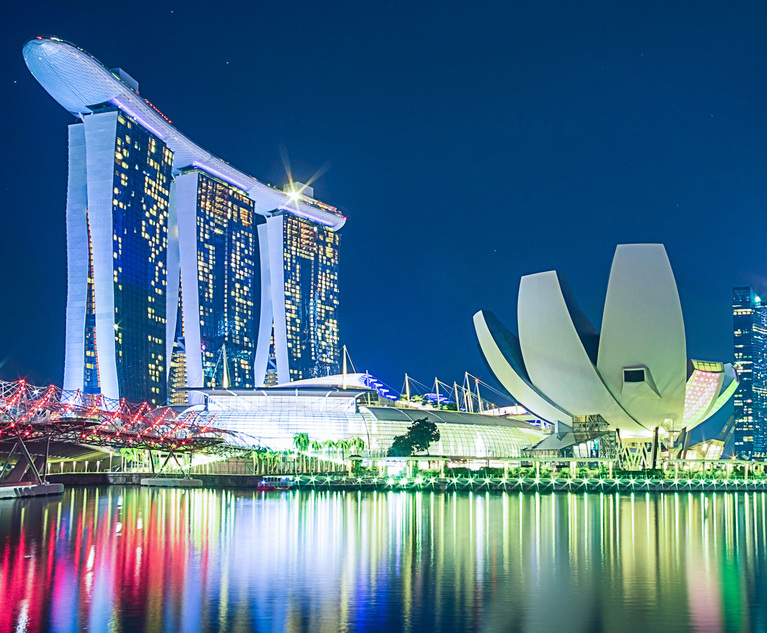When Bird & Bird’s Sandra Seah received an email inviting her to this week’s APEC Summit in San Francisco, the partner said she jumped at the opportunity to attend the forum bringing together world leaders in the interest of promoting trade throughout the Asia-Pacific region.
Seah, a corporate lawyer based in Singapore, joined the event as part of a 30-member delegation from the American Chamber of Commerce in Singapore.
“In Singapore, it’s not good enough to say, ‘I’m good at lawyering,’” Seah said. “You need to be very, very aware of the commercial context in which our clients operate—the business climate and the geopolitical climate.”
London-founded Bird & Bird, which launched its first U.S. office in San Francisco in 2018, represented AmCham in a number of pro bono matters in the last two years, which is one reason the organization extended an APEC invite to Seah, she said.
China is Singapore’s biggest trading partner, and the U.S. is the source of Singapore’s top foreign direct investors, so knowing what’s going on with both countries—as well as all of Singapore’s neighbors—is critical, according to Seah. After President Joe Biden met with Chinese President Xi Jinping during the summit, “there will be no cold war, things have stabilized and trade will go on,” she said.
“The presentations by the various presidents said the same thing, ‘Asia open for business, open for trade,’” she said. “I’m infused with hope.”
For more than two decades, Seah has served as regulatory counsel to the Energy Market Authority of Singapore, and the attorney said she met many energy experts at APEC. In June, the U.S. and Singapore announced a climate partnership to collaborate on climate action including standards-setting and research and development. Seah, who is hoping to drive more public and private sector finance into Singapore’s energy economy, said Singapore is about a decade behind the U.S. in its investment in alternative energy such as solar power. The country can leverage its partnership with the U.S. to “tell us what to do with all these old solar energy panels” in 10 years after they’ve started to degrade, she said.
Bird & Bird’s U.S. office serves as a conduit for U.S.-Singapore partnerships, she said. When U.S. companies want to come to Singapore, the firm helps them set up their business—including representing them in real estate- and employment-related legal matters—connects them with business partners, and then localizes their U.S. contracts to comply with Singapore law.
Seah also represents companies in cross-border M&A transactions, and Singapore serves as a strategic outpost for U.S. companies to scale up in the region, particularly in areas such as biomedical technology, high-tech manufacturing and pharmaceuticals, according to Seah. The ballooning artificial intelligence space also presents an opportunity for collaboration between the two countries.
At the conference, experts pushed for open and transparent standards governing AI but cautioned against over-regulating the technology at the cost of creativity. The message, Seah said, was, “We must make sure AI is accessible to everyone, so there’s no divides between the haves and the have-nots. Everyone is entitled to the use of it.”


